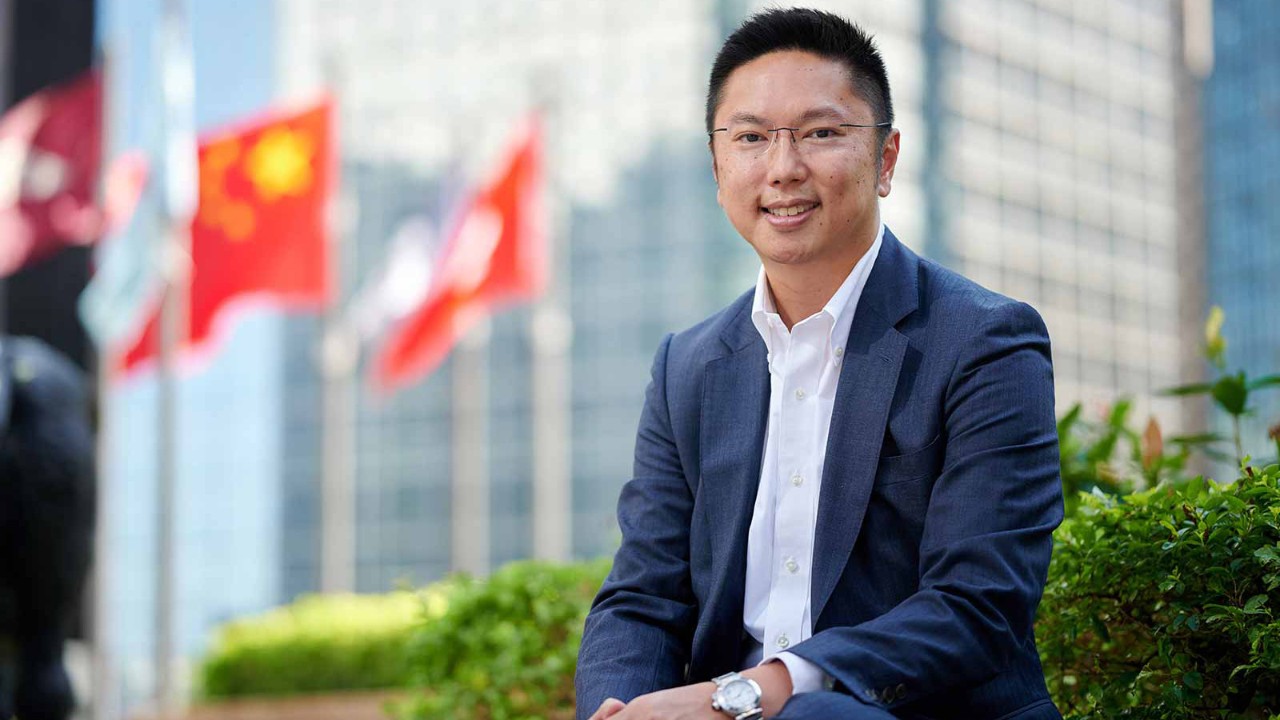
Two decades on from joining a Big Four firm, Charles Chan’s passion for accountancy has not faded, and he still believes that his father’s advice to pursue a career in the profession was sound.
‘I like interacting with people from different industries, so working in accounting is the perfect fit,’ says Chan, who landed his first job as a tax associate at PwC Hong Kong back in 2001 and has worked his way up through the ranks to become a tax partner.
‘I like interacting with people from different industries, so working in accounting is the perfect fit’

Evolving profession
Chan is very aware that the accountancy profession has gone through a myriad of changes over the past couple of decades.
‘When we started our profession, there was no iPhone but there were emerging industries such as biotech, gaming and e-commerce,’ he notes.
‘The most challenging part of the profession now is to understand clients’ business models and where we can generate business value to solve their complex challenges.’
Beyond the numbers
The secret to adapting, according to Chan, is to stay up to date with knowledge of both the industry and technology. Just as important, though, is to go beyond the numbers and use the analytical skills that training in accounting and finance provides.
‘We won’t get the information from seeing the numbers on the screen,’ he says. ‘First-hand information is always from the clients. I like to go to their office and chat with their operations staff in order to address issues better.’
Global perspective
In addition to the almost-constant change that the industry has undergone, there are also broader changes that affect his work and skill sets on an almost daily basis.
For example, transactions are becoming more global and often involve tax systems in different jurisdictions, with various impacts on industries and size of companies.
Whereas clients would once only ask for tax solutions in Hong Kong SAR and mainland China, a business project today may involve dozens of countries, creating its own challenges, Chan explains.
‘The key for us is to ask the right questions of business operations in other countries, so that our Hong Kong team can digest the data, analyse issues and generate sustained solutions for clients,’ he says.
Diverse team
Chan’s work includes handling tax disputes, advising on tax planning strategies, and co-ordinating regional and global projects. He pays tribute to his team, which includes accountants of different generations and backgrounds.
Chan acknowledges that no single accountant can ever have enough indepth knowledge of every country’s tax system as well as being an expert in environmental, social and governance (ESG), increasingly being demanded in today’s business climate. Rather, accounting is a collective effort that depends on teamwork.
He observes that his younger colleagues are creative, able to think outside the box and react quickly to situations. Their ability to absorb new knowledge and information is also impressive. These qualities are invaluable as today’s clients not only want routine advice; they are also looking for innovative solutions to respond to rapid changes in industry and technological trends.
‘We used to use Excel spreadsheets; now, they use automation tools to sort and analyse the data within a second, which saves us time,’ says Chan.
CV
2017
Tax partner, PwC Hong Kong
2015
Tax director, PwC Hong Kong
2008
Senior manager, PwC Hong Kong
2001
Tax associate, PwC Hong Kong
‘The most challenging part of the profession now is to understand clients’ business models’
PwC
295,000
Number of employees globally in 156 countries
4,690
Number of employees in Hong Kong SAR
84%
The proportion of Global Fortune 500 clients
US$45bn
Global revenues of FY21
Communication, he says, plays a central role in managing a team with more than 100 people from different generations, ideas and agility to deliver client work.
‘The first thing is to build trust,’ Chan says. ‘You need to think from their points of view, speak their language and inspire ideas. The younger generation have innovative ideas and are digitally savvy, while we have the experience of the industry. How should we pass on our skills to them, so that they can integrate and then carry forward?’
GBA opportunities
Chan sees the Greater Bay Area (GBA) as an important area for growth, with plenty of opportunities. Not only do the government policies of Hong Kong SAR and mainland China promote this area, the market of 80 million people creates a tangible demand.
For this reason, Chan encourages young ACCA members to take advantage of the opportunities to further their studies in the GBA and leverage the experience.
He notes that Hong Kong is at an advantage since it has cultural familiarity and geographical proximity to mainland China. The Special Administrative Region is, he says, still a good platform for foreign investment and for enterprises in the GBA to trade globally and capture economic opportunities within the bay area.
‘Hong Kong also has an appealing tax system with a low tax rate and preferential treatment to fund industry and support start-ups. All these practices will attract more foreign business and capital into Hong Kong,’ Chan says, adding that the flow of talent, logistics and capital between Hong Kong and other GBA locations also creates opportunities for accountants in Hong Kong.
‘These include opportunities to deal with tax and regulatory issues that emerge within the flow of work, such as tariffs, value-added tax and crossborder interest.’
Business models
Given that business models and tax are closely related, helping clients build their business models opens yet another area of expansion for accountants.
‘Take clothes manufacturing as an example,’ Chan says. ‘Deciding whether to do business in Vietnam or Europe, laying out the supply chain and maximising the profits while taking the local preferential taxing policies into account are areas in which accountants can provide clients comprehensive solutions.’
‘In this sense, an accountant needs to have up-to-date knowledge, including local preferential policies, have practical experience and help clients to land their projects.’
ESG partners
With environmental, social and governance (ESG) expected to be a critical area for clients over the next few years, more clients will need the support of accountants to find sustainable solutions that build trust with their stakeholders, but also meet regulatory requirements and annual reporting.
Going back to basics, Chan thinks that understanding the supply chain is fundamental. Taking the example of clothing retail, he points out that major companies may not be aware of the ESG requirements within their supply chains: ‘An accountant can help the client develop a better control system in each part of the supply chain,’ he says.
‘Reporting is the final step; the most value-added part for an accountant is to help adjust the business model according to the ESG requirement.’
Knowledge sharing
Outside of his day job, Chan makes time to contribute to the work of ACCA Hong Kong, as a committee member and co-chairman of the taxation and SME subcommittees. He enjoys the discussion among the members of the taxation sub-committee, as well as the process of putting forward recommendations to the Hong Kong government ahead of the annual Budget announcement.
One of Chan’s duties in the ACCA tax committee is to share knowledge on complex issues with members through seminars and discussions.
‘I love to share tax knowledge with members,’ he says, ‘especially when I hear that they have enjoyed seminars and absorbed the knowledge. It’s always exciting to hear positive feedback and continue to learn and influence others.’
